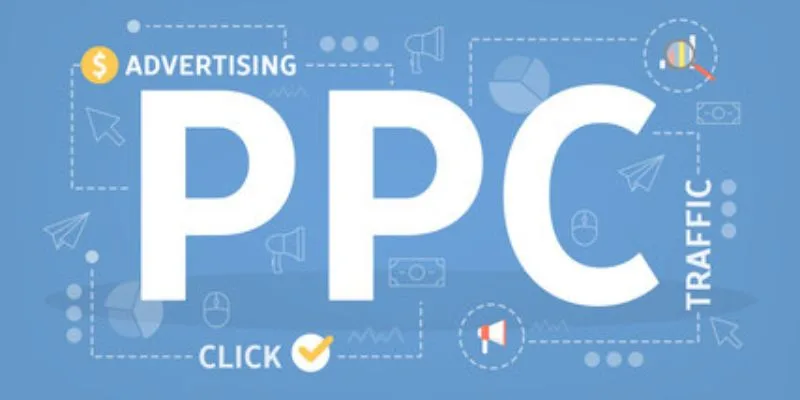Using pay-per-click (PPC) advertising is often one of the quickest methods to attract targeted visitors to your site. But without a well-structured campaign, you could waste both time and money. Whether you’re using Google Ads, Bing Ads, or any other platform, a robust campaign framework is essential for attaining high conversion rates and ensuring a solid return on investment (ROI).
If you’re new to paid advertising or want to sharpen your skills, enrolling in a Digital Marketing Course in Kolkata at FITA Academy can help you master the tools and techniques needed to build and manage successful PPC campaigns.
Below, we’ll walk through how to build a high-converting PPC campaign from the ground up.
1. Start with Clear Goals
Before creating any ads, define what success looks like. Are you aiming for product sales, lead generation, app downloads, or website traffic? Your goals should guide every decision you make, from keyword selection to ad copy.
For example, if your goal is lead generation, your campaign should focus on capturing form submissions or sign-ups. If you’re running an e-commerce campaign, your priority will be conversions, such as completed purchases or add-to-cart actions.
2. Conduct Keyword Research
Keywords serve as the cornerstone of any PPC campaign. Choose keywords that correctly represent the interests of your target audience. Utilize tools such as Google Keyword Planner or SEMrush to discover suitable terms that strike a balance between search volume and competition.
Group your keywords by intent. For instance, informational keywords like “what is PPC advertising” are useful for awareness campaigns, while commercial keywords like “buy running shoes online” are ideal for sales-focused campaigns.
Include a mix of:
- Exact match: for precise control
- Phrase match: for variation with some flexibility
- Broad match modifiers: to reach a wider but relevant audience
Also, remember to add negative keywords to avoid wasting budget on irrelevant searches.
3. Organise Campaigns and Ad Groups
A well-organized account structure improves ad relevance and Quality Score, which can reduce your cost-per-click. If you’ve taken a Digital Marketing Course in Delhi, you’ve likely learned that structuring campaigns by theme, product category, or service type leads to better performance. Within each campaign, create tightly focused ad groups with related keywords and matching ad copy. For instance, if you sell both running shoes and hiking boots, you should create separate ad groups for each.
Keeping ad groups small and focused helps you write more targeted ads, which improves click-through rates and lowers costs over time.
4. Write Compelling Ad Copy
Your advertisement should address the intent of the person searching. To enhance ad relevance, incorporate the main keyword in your headline and at least one line of the description.
Highlight benefits, features, and your unique selling points. Use strong calls-to-action like “Get a Free Quote,” “Buy Now,” or “Limited Offer.” Also, leverage ad extensions to add extra information such as site links, callouts, and location info.
Make sure your ads match the landing page content to avoid user confusion and increase conversions.
5. Create Landing Pages That Convert
Even the best ad won’t convert if the landing page doesn’t deliver. Create landing pages that load quickly, are optimized for mobile devices, and match the messaging of the advertisement.
Include a clear headline, a focused offer, and a strong call-to-action. Remove distractions such as unnecessary navigation links or unrelated content. Your goal is to guide the visitor toward one specific action, whether it’s filling out a form or making a purchase.
A/B test your landing pages regularly to see which layout, messaging, or visuals perform better.
6. Track Performance and Optimize
Once your campaign is live, monitor its performance closely. Focus on key metrics like:
- Click-through rate (CTR)
- Cost-per-click (CPC)
- Conversion rate
- Quality Score
- Return on ad spend (ROAS)
Make data-driven adjustments. Pause underperforming ads or keywords, refine your ad copy, or experiment with new audience segments. Regular optimization helps you lower costs and improve results over time.
A high-converting PPC campaign starts with a clear strategy and ends with ongoing optimisation. By researching the right keywords, structuring your account effectively, crafting engaging ads, and creating compelling landing pages, you set the stage for strong performance.
Keep testing, analysing, and improving your campaigns to stay ahead in a competitive digital space. If you’re looking to build expertise in this area, enrolling in a Digital Marketing Course in Hyderabad can provide hands-on training and help you master PPC strategy from start to finish. A well-structured PPC campaign doesn’t just attract clicks, it turns them into conversions.
Also check: How do Beginners Start Digital Marketing?

